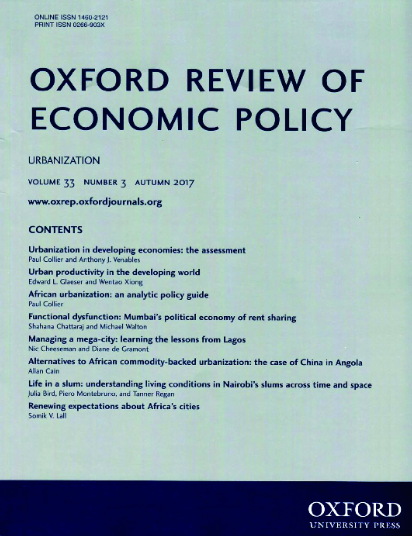Algorithmic fairness in credit scoring
IF 2.1
2区 经济学
Q2 ECONOMICS
引用次数: 13
Abstract
The use of machine learning as an input into decision-making is on the rise, owing to its ability to uncover hidden patterns in large data and improve prediction accuracy. Questions have been raised, however, about the potential distributional impacts of these technologies, with one concern being that they may perpetuate or even amplify human biases from the past. Exploiting detailed credit file data for 800,000 UK borrowers, we simulate a switch from a traditional (logit) credit scoring model to ensemble machine-learning methods. We confirm that machine-learning models are more accurate overall. We also find that they do as well as the simpler traditional model on relevant fairness criteria, where these criteria pertain to overall accuracy and error rates for population subgroups defined along protected or sensitive lines (gender, race, health status, and deprivation). We do observe some differences in the way credit-scoring models perform for different subgroups, but these manifest under a traditional modelling approach and switching to machine learning neither exacerbates nor eliminates these issues. The paper discusses some of the mechanical and data factors that may contribute to statistical fairness issues in the context of credit scoring.信用评分中的算法公平性
机器学习作为决策输入的使用正在增加,因为它能够揭示大数据中的隐藏模式并提高预测准确性。然而,人们对这些技术的潜在分配影响提出了质疑,其中一个担忧是,它们可能会延续甚至放大过去人类的偏见。利用80万英国借款人的详细信用档案数据,我们模拟了从传统的(logit)信用评分模型到集成机器学习方法的转变。我们确认机器学习模型总体上更准确。我们还发现,它们与关于相关公平标准的更简单的传统模型一样好,在传统模型中,这些标准与受保护或敏感线(性别、种族、健康状况和贫困)定义的人群亚组的总体准确性和错误率有关。我们确实观察到不同亚组的信用评分模型的表现方式存在一些差异,但这些差异在传统的建模方法下表现出来,而转向机器学习既没有加剧也没有消除这些问题。本文讨论了信用评分中可能导致统计公平问题的一些机械和数据因素。
本文章由计算机程序翻译,如有差异,请以英文原文为准。
求助全文
约1分钟内获得全文
求助全文
来源期刊

Oxford Review of Economic Policy
ECONOMICS-
CiteScore
12.50
自引率
1.50%
发文量
41
期刊介绍:
The Oxford Review of Economic Policy is a refereed journal which is published quarterly. Each issue concentrates on a current theme in economic policy, with a balance between macro- and microeconomics, and comprises an assessment and a number of articles. It gives a valuable appraisal of economic policies worldwide. While the analysis is challenging and at the forefront of current thinking, articles are presented in non-technical language to make them readily accessible to all readers. The Oxford Review is aimed at a wide audience including government, business and policy-makers, as well as academics and students. It is required reading for those who need to know where research is leading.
 求助内容:
求助内容: 应助结果提醒方式:
应助结果提醒方式:


